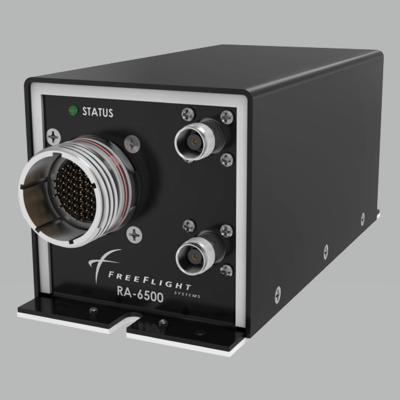IATA States Unfairness of Current Deadline “Cannot be Overstated”
To the subject of the advent of 5G connectivity services, US airlines are urging the Federal Aviation Administration (FAA) to extend its radar altimeter retrofit deadline to June 2024. Air-carriers contend their fleets cannot be made ready to operate safely in the presence of 5G C-band frequencies within the agency’s specified timeframe. Under the FAA's extant proposal, carriers would be required to retrofit their aircrafts’ radar altimeters by July 2023.

Trade group Airlines 4 America (A4A)—which represents ten major US carriers, including American Airlines, Delta Air Lines, United Airlines—has "strongly urged" the FAA to extend its deadline to June 2024, that airlines might be afforded sufficient time to retrofit their fleets. The group has asked for the extension "to reflect technical realities and the continued safe operation of many aircraft." A4A’s assertions came one week after the International Air Transport Association (IATA) set forth that many airlines would fail to meet the radar altimeter refit deadline due to supply chain issues, certification delays, and logistical challenges.
Calls for a deadline extension were echoed by the Aerospace Industries Association (AIA) on behalf of several industry stakeholders, including Boeing and Airbus. The association highlighted the Airworthiness Directive's (AD) deficiencies and made numerous recommendations, including clarifications of compliance, procedures and uniform coverage.
The AIA stated: "We find significant deficiencies in the existing text to adequately provide equivalent levels of safety for airplane operations in the NAS [National Airspace System] given the rapid growth of 5G C-band emissions in the United States."
In January 2023, the FAA proposed setting a February 2024 deadline for all commercial passenger and cargo air-carriers to retrofit their aircraft with 5G C-Band-tolerant radio altimeters or approved filters. The agency had initially sought to prevail upon airlines to have their fleets so retrofitted by July 2023—a proposal IATA called an "ad hoc unilateral and unrealistic pronouncement" with no consensus among air-carriers.
Among the major concerns with which the aerospace industry looks upon 5G technology is its potential to interfere with aircraft equipment, particularly radio altimeters that operate on a frequency close in wavelength to those utilized by 5G transmitters. Stating unequivocally that "a material number of aircraft" would not be ready in time, airlines have warned of significant operational challenges should the FAA fail to grant a deadline extension for the refitting of the sector’s thousands of radar altimeters.

Regrettable, if not predictably, the telecommunications trade association CTIA—which represents 5G providers Verizon and AT&T—has dismissed calls by airlines for a deadline extension. CTIA cited the wireless industry’s $80-billion investment in the C-band 5G spectrum, including $52.9-billion invested by Verizon.
CTIA stated: "By requiring accountability, the FAA is taking important steps to ensure radio altimeter performance is more resilient while enabling timely C-Band 5G deployment."
The FAA fatuously contends that the entirety of compulsory 5G retrofits will cost air-carriers a scant $26-million. Conversely, and decidedly more accurately, IATA has calculated subject retrofits will cost airlines at least $637-million—a figure 2450% higher than the FAA's estimate.
IATA contends: "The aviation industry, rather than the Federal Communications Commission or the telecommunications companies, is being told to pay to upgrade its certified radio altimeters. The unfairness of this cannot be overstated."
IATA added that the FAA failed to include the costs of six-thousand aircraft already retrofitted, and also omitted foreign-registered planes from its estimate.
Similarly, the AIA averred the FAA’s proposed retrofit deadline "does not address a realistic cost assessment of the research and development cost associated with the work done to date or the additional work that will be required, especially given the number of different aircraft models potentially affected."
 Bolen Gives Congress a Rare Thumbs-Up
Bolen Gives Congress a Rare Thumbs-Up The SportPlane Resource Guide RETURNS!!!!
The SportPlane Resource Guide RETURNS!!!! Buying Sprees Continue: Textron eAviation Takes On Amazilia Aerospace
Buying Sprees Continue: Textron eAviation Takes On Amazilia Aerospace Hawker 4000 Bizjets Gain Nav System, Data Link STC
Hawker 4000 Bizjets Gain Nav System, Data Link STC Echodyne Gets BVLOS Waiver for AiRanger Aircraft
Echodyne Gets BVLOS Waiver for AiRanger Aircraft




